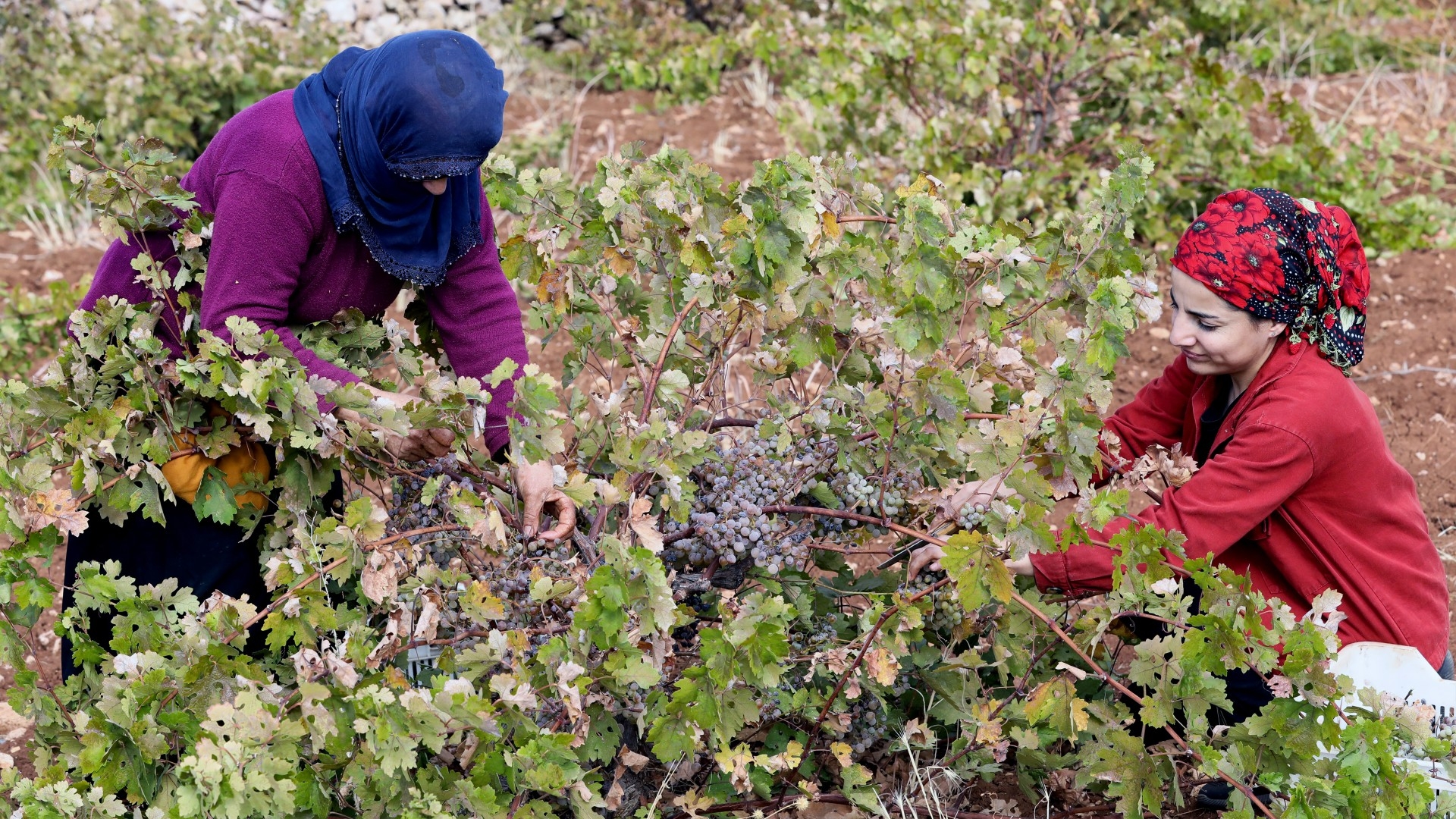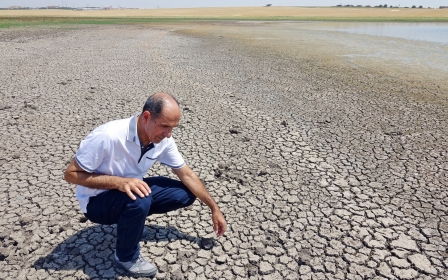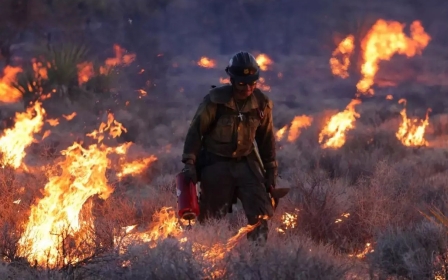Turkey: Extreme weather threatens smaller harvests and higher prices

Record temperatures in Turkey have caused fruit and vegetables to die on the vine, with producers fearing this year's extreme heat could devastate harvests.
Fruit and vegetable suppliers told Middle East Eye that intense and long-lasting heatwaves could also affect global food security, as farmers counted the cost of the climate crisis.
Last week, Turkey recorded its hottest temperature on record, with the mercury in the southeastern province of Hatay reaching 50C.
The temperature has since subsided, but wildfires continued to burn out of control in the Canakkale province. More than 1,400 hectares of land are estimated to have been affected, and on Tuesday authorities briefly suspended shipping traffic along the Dardanelles Strait due to a windswept forest fire near Canakkale city.
Ali Ucak, who owns an agricultural company which exports fruit and vegetables, said historically high temperatures between May and August had brought devastation to his pepper and aubergine harvests.
New MEE newsletter: Jerusalem Dispatch
Sign up to get the latest insights and analysis on Israel-Palestine, alongside Turkey Unpacked and other MEE newsletters
"Even in the highlands, temperatures have seen 40 degrees this year. Half of the production is gone," he told Turkish media.
Droughts are becoming more common and more severe due to climate change, and last year the World Bank said that "without reform, a 10 percent fall in water supply in Turkey could reduce GDP by six percent".
The lack of water has significantly affected vegetation and crops in the middle of the growing season, leading to delayed sowing and low yield forecasts.
Last week, the Istanbul municipality took the drastic step of asking residents to reduce their water consumption, as major cities across the country grappled with high temperatures.
Huge losses
Semsi Bayraktar, chairman of the Union of Chambers of Agriculture of Turkey (TZOB), said this year's heatwaves had devastated farmland, with sunflower and olive production among the hardest hit.
Hursit Ozturk, chairman of Mugla Commodity Exchange, said there were losses in the olive and beekeeping sectors in the southwestern city, due to extreme heat and irregular rainfall.
"Our olive cultivation sector, which was quite productive last year, was affected by climate conditions by almost 50 percent this year," he said.
"It is predicted that there will be a loss of 50 percent in the harvest [in Mugla]."
The olive oil industry across the Mediterranean has been badly affected by increasing temperatures, with fears that production could plummet by 30 percent.
Turkey banned the export of bulk olive oil earlier this month, but the full extent of the damage won't be known until after harvest time in October and November.
Irfan Donat, agriculture editor at Bloomberg HT, told MEE that climate change posed a serious risk to the agricultural sector.
"The Mediterranean reservoir in general is under heavy risk, and it includes Turkey," he said.
Climate change, fuelled by burning fossil fuels like coal, oil and natural gas, is expected to raise the likelihood of crop failures from both drought and excessive precipitation.
"The heatwaves not only create a drop in production, but also move the planting and harvest seasons [away from] their usual timeframe," Donat said.
"It pushes farmers to use more pesticides to fight diseases and insects. The plants, such as wheat, are sometimes exposed to rainfall when they shouldn't be."
Donat expected sunflower production in the western region of Thrace to fall by 70 percent during the upcoming harvest, which would result in a 20 percent drop in overall production of the plant throughout the country.
Desertification
Many areas of Turkey recorded lower than average rainfall this year. The western city of Tekirdag was its driest for 60 years.
While sunflower fields around the city usually stretch as far as the eye can see - more than 50 percent of Turkey's harvest is produced here - this year’s drought has caused significant yield losses.
'Inflation isn't that important, once we find ourselves increasingly in the midst of a crisis where food is getting scarce'
– Irfan Donat, agriculture editor at Bloomberg HT
Ekrem Saylan, president of Kırklareli Chamber of Agriculture, told the TV channel Ulusal that there had been almost no rain in Tekirdag for the past two months.
Saylan added that rice production is projected to shrink this year, largely because of extreme weather.
"We will have a problem with [rice] paddy as well. The dams have a very low water level, and if the water is cut there would be serious problems in paddy cultivation, especially next year," he said.
The Environmental group TEMA Foundation reported in June that desertification was eating up Turkey's fertile lands, with a staggering 73.4 percent of the country in danger.
"Our agricultural lands decreased by approximately four million hectares between 1990-2022, from 27.9 million hectares to 23.9 million hectares. This means the loss of an agricultural area approximately 7.5 times the size of Istanbul," Deniz Atac, the foundation's chairman, said.
Donat added that the heatwaves were also causing the price of seasonal fruits and vegetables such as green beans, cherries and grapes to increase beyond the means of ordinary Turks.
"Inflation isn't that important, once we find ourselves increasingly in the midst of a crisis where food is getting scarce as the rainfalls dry out," he said.
"This will be a major problem in terms of access to food and water in coming years."
Middle East Eye delivers independent and unrivalled coverage and analysis of the Middle East, North Africa and beyond. To learn more about republishing this content and the associated fees, please fill out this form. More about MEE can be found here.





